In recent years, antibiotic resistances have become increasingly significant in the area of hygienic parameters. As part of the HyReKA project, TZW is conducting extensive research on the presence of antibiotic-resistant pathogens and antibiotic resistance genes in raw water.
In consequence of antibiotic use in human and veterinary medicine resistances spread in the environment during the last years.
Against this background the dissemination of resistant pathogens via waste water from hospitals, communal areas, animal fattening farms and abattoirs and from airports was investigated in this large-scale joint project and suitable counterstrategies developed. The results will help to better identify and avoid the risk of multi-resistant bacteria spreading in the aquatic environment.
As part of the HyReKA project, TZW was involved with detecting antibiotic-resistant bacteria and antibiotic resistance genes in water used for drinking water production. Together with the partners, culture-based and molecular biological detection methods were standardized and subsequently used for monitoring.
Overall, the results demonstrate the wide distribution of antibiotic-resistant bacteria and antibiotic resistance genes, mainly in surface waters. Nevertheless, a hazard to drinking water is currently not to be expected if the recognized rules of technology are observed and the drinking water meets the legal hygienic-microbiological requirements. In order to specifically control the occurrence of antibiotic-resistant bacteria and antibiotic resistance genes and to monitor their spread, standardized detection methods must be used for the environmental sector. Only in this way is it possible to achieve comparability of studies. A first step towards the definition of such methods was taken within the HyReKA project.
Publications
Stange C., Yin D., Xu T., Guo X., Schäfer C., Tiehm A.: Distribution of clinically relevant antibiotic resistance genes in Lake Tai, China.
Science of the Total Environment 655: 337-346 (2019) DOI 10.1016/j.scitotenv.2018.11.211
Stange C., Tiehm A.: Bedeutung von Antibiotikaresistenzen für die Rohwässer zur Trinkwasseraufbereitung. In: Gewässerschutz Wasser Abwasser 250 (Band zur 52. Essener Tagung für Wasserwirtschaft), ISSN: 0342-6068: 21/1-21/5 (2019)
Stange C., Sidhu J.P.S., Toze S., Tiehm A.: Comparative removal of antibiotic resistance genes during chlorination, ozonation, and UV treatment. Int. J. Hyg. Environ. Health 222: 541-548 (2019) DOI 10.1016/j.ijheh.2019.02.002
Stange C., Tiehm A.: Verhalten von Antibiotika-Resistenzgenen bei der Trinkwasseraufbereitung. Veröffentlichungen aus dem Technologiezentrum Wasser, ISSN 1434-5765, TZW-Band 76 (2017)
Stange C.,Sidhu J.P.S.,Tiehm A.,Toze S.: Antibiotic resistance and virulence genes in coliform water isolates. International Journal of Hygiene and Environmental Health 219: 823-831 (2016) DOI.org/10.1016/j.ijheh.2016.07.015
Stoll C., Sidhu J.P.S., Tiehm A., Toze S.: Prevalence of clinically relevant antibiotic resistance genes in surface water samples collected from Germany and Australia.
Environmental Science & Technology 46: 9716-9726 (2012) DOI.org/10.1021/es302020s
The volumes of the TZW publications can be ordered here.


![[Translate to English:] Prüfstelle-Produktprüfung_Teststand Test centre and product testing](/fileadmin/_processed_/0/9/csm_TZW-Karlsruhe_Pruefung_Geraete-Teststand_444204ae51.jpg)
















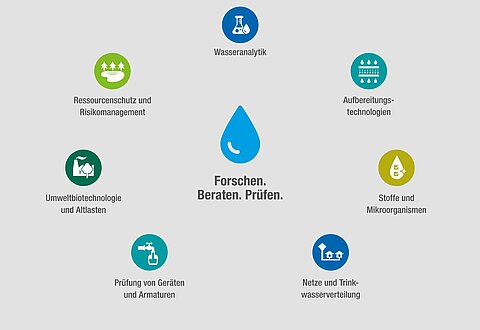
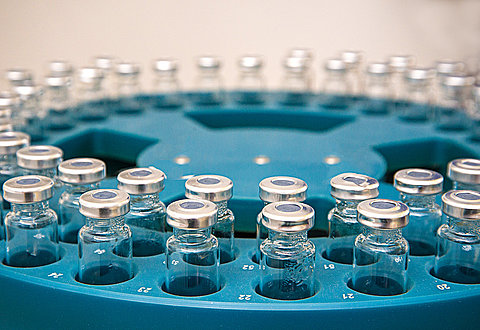
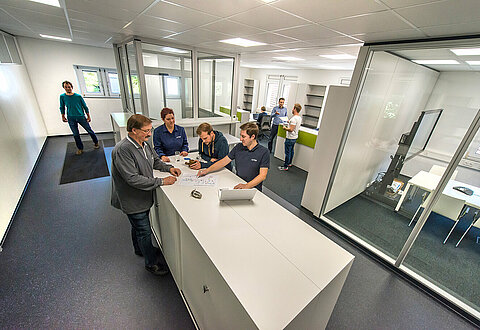
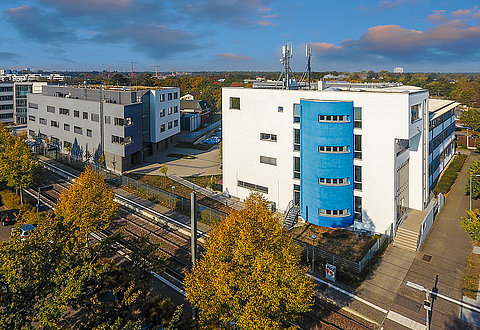
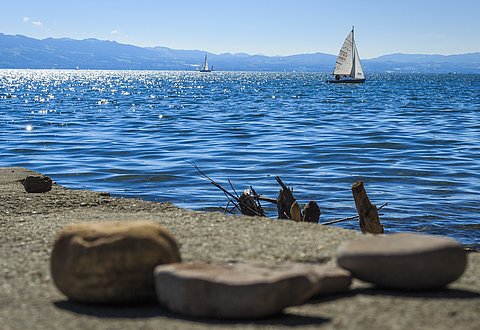


![[Translate to English:] [Translate to English:]](/fileadmin/_processed_/2/9/csm_HyReKA_Logo_CR_dc6907defb.jpg)
